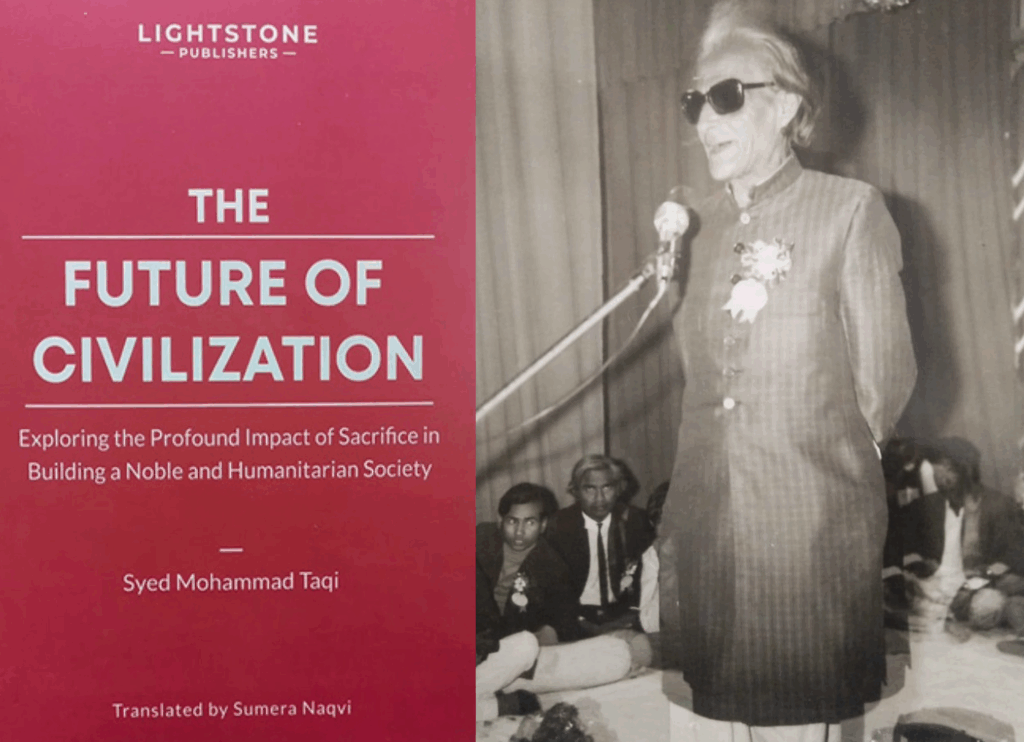Posted on August 24, 2025
Karachi:
The philosopher, intellectual, writer and journalist Syed Mohammad Taqi does not need introduction. However, for the sake of those who have weak memories, Taqi was an eminent philosopher, historian, scholar, thinker and writer, and remained a Jang editor for almost twenty -five years. He wrote extensively about issues of philosophy, politics, religion, history, culture, economy, sociology, literary criticism and constitutional theory.
In addition to his book Magnum Opus Taarikh Aur Kainat: Mera Nazariya (History and the Universe: My point of view), other books written by him include Mantiq, Falseafa Aur Science (Logic, philosophy and science), Rooh Aur Falsafa (Soul and philosophy), Hindustan: Pasmanzar Peshmanzar (Hindustan: background and foreground), Nahjul Balagha Ka Tasawwar-E-Ulubiyat (Nahjul Balagha’s divinity concept. He also translated many English books to Urdu, among which the translation of Karl Marx’s Kapital das He won worldwide acclamation.
It was a pleasure to receive a copy of the English translation of his book, Karbala: Tehzeeb Ka Mustaqbil (published in 1980), by his granddaughter Sumera Naqvi entitled Future of civilization: explore the deep impact of sacrifice on the construction of a noble and humanitarian society.
Naqvi, like his illustrious grandfather, is a journalist; She started her career with The news And then he moved to Sunrise. In 2014, he entered the development sector, working in mental illnesses, education and poverty relief.
Bible Karbala: Tehzeeb Ka Mustaqbil It deals with philosophical Moral collapse issues, the crisis of modernity and The impact of sacrifice on society, And explore how the moral drift of modern civilization can be faced through reconnecting with historical legacies, especially the lasting symbolism of Karbala.
Although events that lead to Karbala’s tragedy are discussed extensively, it should be taken into account that it is not a religious book dedicated to the history of Karbala, but a philosophical book that Bring Karbala’s message to the modern reader, and philosophically analyzes why Karbala, particularly the Imam Hussain’s timeless stand, was an incomparable moment in human history.
The author argues that “today’s humanity faces the severe moral deficit that prevents human civilization from evolving a truly noble and humanitarian society. Morality is in the heart of civilization, and moral and ethical values can help convert a more liberal and pluralistic society.”
Taqi Sahib emphasizes the crucial need to find models to follow in history that have made monumental sacrifices to defend the civilizational values that are instrumental in the construction of a civilized society oriented to humans. Invite readers to think about the creak of sacrifice, ethics and the civilization crisis of our age.
With a penetrating vision, the author examines the delicate balance between political power and moral principles, the right to dissent and the true meaning of spiritual leadership. Invite readers to consider how Karbala lessons can shape our approach to contemporary ethical dilemmas and social justice.
Taqi Sahib does not limit his speech to the place of Imam Hussain in Muslim society, but also explores his position in the history of civilization. He writes that throughout history, many noble and religious individuals have made sacrifices to defend essential moral values for the evolution of society. By raising the question of whether all men who make sacrifices for moral values are considered equally worthy of admiration, he affirms that the answer to this question is affirmative, however, it is important to consider the values behind a sacrifice; You must also see what were the values for which IMAM Hussain sacrifices its life.
The author draws fascinating parallels between Imam Hussain and other significant historical figures such as Socrates and Jesus Christ, illuminating the unique nature of the sacrifice of Imam Hussain and its lasting relevance. He writes that although the sacrifices and perseverance of Socrates and Jesus Christ remain in the field of moral values, certain distinctions cannot be ignored in the nature of their sacrifices. Hussain’s decision to defend his values and principles exemplifies high moral and civilizational values in history by balancing good and evil.
In several places in the course of his discussion, the author raises questions that invite readers to reflect and then proceed to explain. He builds his arguments but does not issue a trial, but the reader accepts or not.
In his translator’s note, Naqvi invites readers to reflect on the point raised by his daughter: should Imam Hussain be portrayed as a victim or savior of circumstances in the tragedy of Karbala?
Translating a book is not the game of a child, since for this he needs the command both about the original language and in which it is translating. And translating a book by someone from the caliber of Syed Mohmmad Taqi is definitely a feat, especially because it is known that Taqi Sahib used to speak and write very polished and complex Urdu. Naqvi must be complemented and recognized for its ability to translate it into English friendly with readers, while remains faithful to the tone and intention. As Naqvi says in his note, “it is a job of love for my grandfather” and took him more than two years to translate it.
Rizwana Naqvi is an independent and tweet journalist @naqviriz; You can get to it in [email protected]
All facts and information is the exclusive responsibility of the writer




